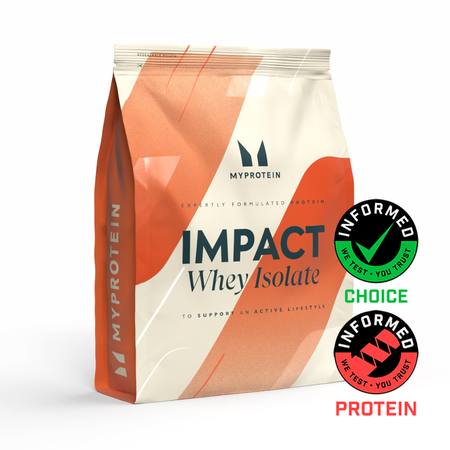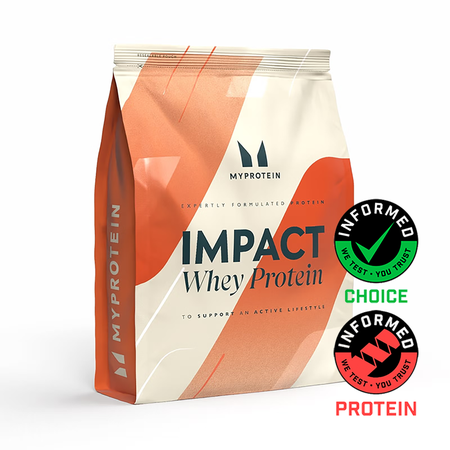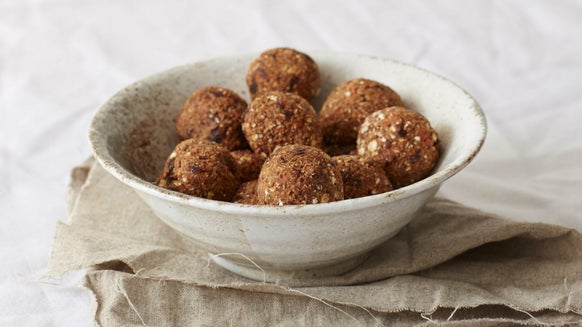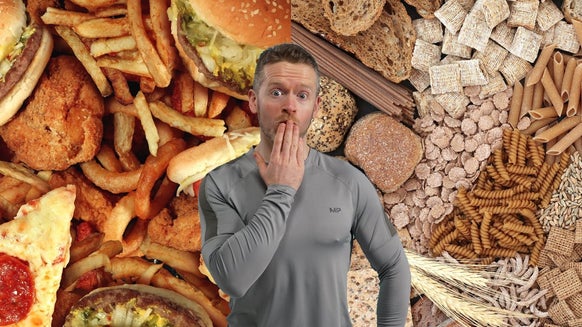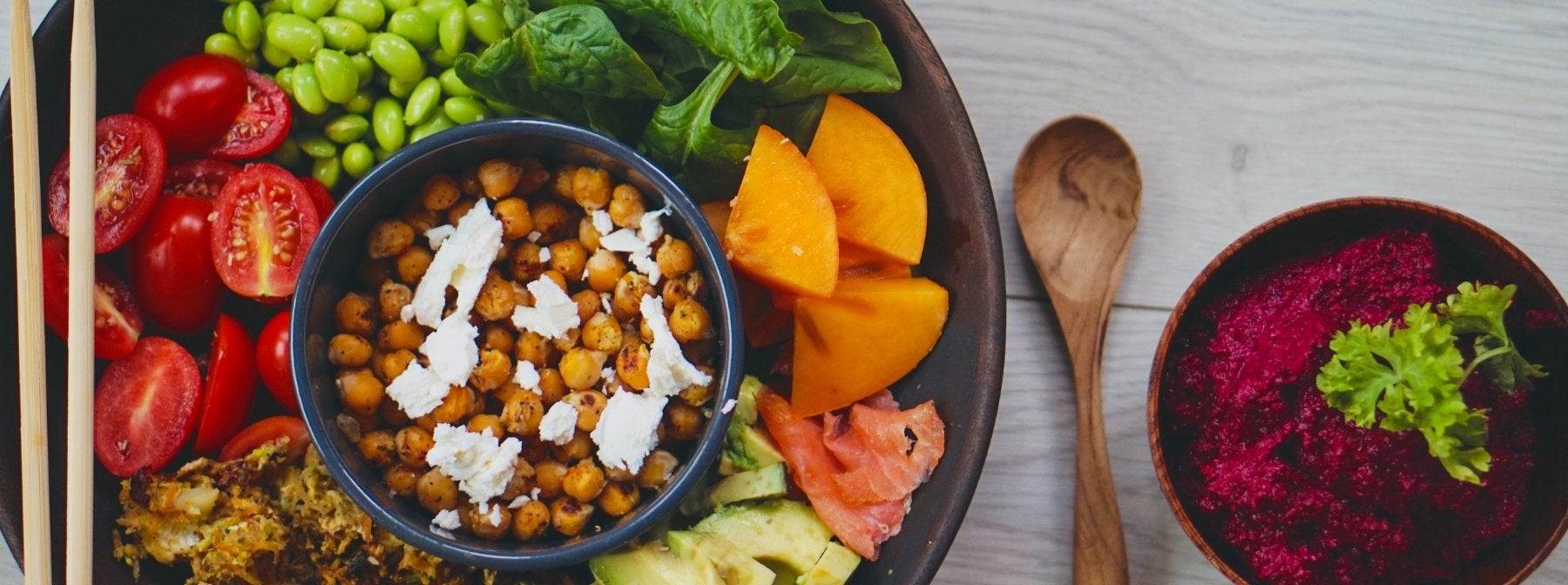
You’d think that with all the information at our fingertips today, nutrition myths would be fewer than maybe in our grandparents’ time.
Unfortunately, the internet is rife with misinformation, and it can be really difficult (sometimes impossible) to tell what is fact and what is a myth. Myths that were previously passed through word-of-mouth now spread like wildfire through social media, blogs, and even established media. There are many reasons for this – like a 24-hour news cycle, research studies that are both long and difficult to read, and journalists/bloggers/celebrities looking for their next viral hit. As a result, information often gets published without being verified (or is ignored).
The result? Confusion, frustration and in some cases harm for those who experiment with the latest quick-fix or magic solution for their weight loss and health problems.
We’ve looked hard at the evidence and discussed 3 nutrition myths that seem to be rampant in India and refuse to die. It’s likely you’ve heard some or all of them at some point.
Myth: Lemon-water is a quick fix for fat-loss
Except it is not.
While there’s nothing harmful about lemon and water, there’s nothing magical about it as well. There are no compounds in that special mixture of a regular fruit mixed in water that triggers a biochemical reaction which starts to melt our adipose tissue.
While you will see weight loss (not fat loss) if lemon-water is the only thing (or one of the few things) you’re having for a few days, that is simply because of a severe calorie restriction as well as water loss [1]. You’ll put these kilos back as soon as you start eating normally.
The truth: Lemons are just fruits, and fruits are healthy. Lemon juice won’t contribute substantially to your micro-nutrient intake, but it also doesn’t contain very many calories. Lemon juice contains small amounts of beneficial micro-nutrients and phytochemicals, but it’s unclear if, among all fruits, lemons are uniquely valuable.
Most importantly for fat loss, lemon-water has no unique, proven weight-loss benefit. So don't expect any miracle fat loss outcomes from lemon water. Sustained fat loss comes from a balanced diet and active lifestyle.
Myth: Chickpea (channa) is a rich source of protein
A simple Google search (“chickpea cooked calories”) will reveal that 100g of this legume contains 9g of protein and 27g of carbohydrates i.e. there’s 3x carbs to the amount of protein in it.
So, while there’s certainly a reasonable amount of protein content in it, it does not qualify as a rich source of protein as we are getting a lot more carbohydrates along with it.
Chickpea can certainly be used to supplement one’s protein intake or to replace sources of carbohydrate with poorer protein content, say rice. And for vegetarians with limited options, it can be used to increase the amount of protein intake.
Truth: Chickpea is not a primary source of protein as every 1g of chickpea protein comes with 3g of carbohydrates. Do not rely on it (or similar legumes) as your primary source of protein. A diet rich in these legumes is a high-carbohydrate diet - not a high-protein one.
Myth: Taking whey is like taking steroids
For a lot of folks new to fitness, supplements can be a scary topic. We’ve been exposed to mainstream media talk about steroids and other illegal performance enhancers, and it can be easy to consider all supplements as being part of the same category. When it comes to whey protein, nothing could be further from the truth.
Whey is a part of milk - if we ‘chop’ milk into two, we will get whey and cheese essentially. Whey has been shown to be completely safe and a high-quality source of protein. It is highly processed (the process is needed to extract the whey from the milk) and care needs to be taken to ensure your whey protein comes from high quality sources.
Whey protein appears to increase muscle protein synthesis to a high degree [2][3][4]. And it does not do any damage to the liver or kidneys. The exception is if there is already pre-existing damage to those organs where it can worsen the issue. So, for people with kidney or liver issues, this might not be a good idea and it is recommended to consult your physician before starting to use whey.
For those without any such issues, it is a great source of protein to supplement our diet with, and not just for those who lift weights or actively exercise. Vegetarians, for example, will see a lot of benefit from adding some whey to their diet.
The truth: Whey is a natural part of milk and shown to be both safe and effective when used by healthy individuals.
Misinformation is rampant, difficult to identify, and unfortunately spreads much faster than facts. And really, this is just the tip of the iceberg. Because we all want to get fitter, it’s easy to fall for health myths.
Believing something, or wanting it to be true, or feeling it should be true doesn’t mean it is true. So be curious, be skeptical, ask questions.
To know more about the author here.

Arvind is a StrongFirst Kettlebell Level 2 coach and Nutrition Coach.
He has worked with hundreds of people at his gym to help them find their path to sustainable, life-long fitness and health. Arvind was also the co-author of the best poster awarded at the NNEdPro International Summit on Medical Nutrition Education and Research 2018 held in Cambridge, UK.
He is the co-founder of Daily9, a wellness start-up that uses cutting edge science and technology to help people lose weight, gain confidence and feel better than they have in years. Daily9 has coached over a 1,000 people to make sustainable lifestyle changes and see real results.
References:
[1]: Kreitzman SN, Coxon AY, Szaz KF (1992). Glycogen storage: illusions of easy weight loss, excessive weight regain, and distortions in estimates of body composition . Am J Clin Nutr. Am J Clin Nutr.;56(1 Suppl):292S-293S. doi: 10.1093/ajcn/56.1.292S.
[2]: Tipton KD1, Elliott TA, Cree MG, Wolf SE, Sanford AP, Wolfe RR.(2004), Ingestion of casein and whey proteins result in muscle anabolism after resistance exercise. Med Sci Sports Exerc.;36(12):2073-81.
[3] Pennings B1, Groen B, de Lange A, Gijsen AP, Zorenc AH, Senden JM, van Loon LJ (2012). Amino acid absorption and subsequent muscle protein accretion following graded intakes of whey protein in elderly men. Am J Physiol Endocrinol Metab.;302(8):E992-9. doi: 10.1152/ajpendo.00517.2011.
[4] Reitelseder S1, Agergaard J, Doessing S, Helmark IC, Lund P, Kristensen NB, Frystyk J, Flyvbjerg A, Schjerling P, van Hall G, Kjaer M, Holm L (2011). Whey and casein labeled with L-[1-13C]leucine and muscle protein synthesis: effect of resistance exercise and protein ingestion. Am J Physiol Endocrinol Metab;300(1):E231-42. doi: 10.1152/ajpendo.00513.2010.
